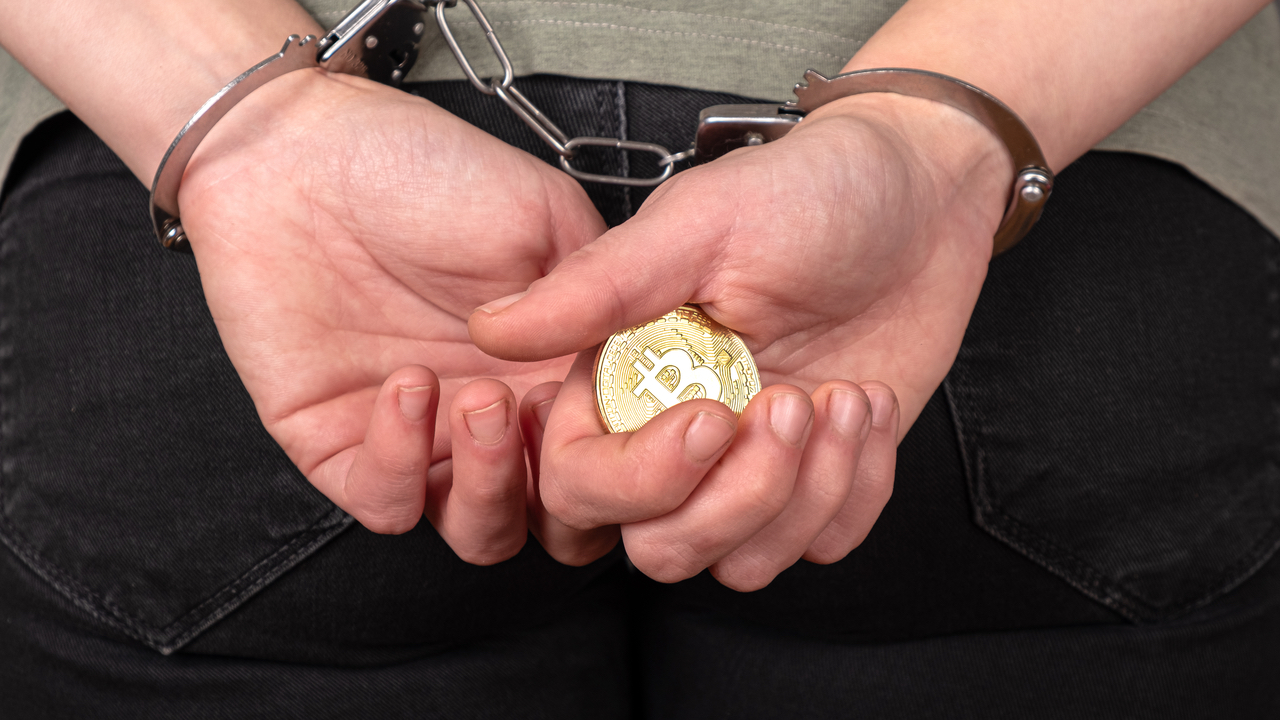 The Reserve Bank of Zimbabwe (RBZ) has said it will start issuing gold-backed digital tokens on May 8. The first phase of the launch will see the digital tokens being issued for “investment purposes with a vesting period of 180 days.” The RBZ also revealed that the gold-backed digital tokens “would be used both as […]
The Reserve Bank of Zimbabwe (RBZ) has said it will start issuing gold-backed digital tokens on May 8. The first phase of the launch will see the digital tokens being issued for “investment purposes with a vesting period of 180 days.” The RBZ also revealed that the gold-backed digital tokens “would be used both as […]
The Mastercard-Immersve partnership uses decentralized protocols to settle real-time cryptocurrency transactions on outlets accepting Mastercard payments online.
A partnership between Web3 payment protocol Immersve and payments giant Mastercard will allow users to make crypto payments on digital, physical and the Metaverse worlds. USD Coin (USDC) tokens — a US dollar-backed stablecoin issued by Circle — will be used to settle transactions on Mastercard’s network.
The Mastercard-Immersve partnership uses decentralized protocols to settle real-time cryptocurrency transactions on outlets accepting Mastercard payments online. Users will be able to use their existing Web3 wallets to make direct crypto payments without relying on a third party for collateral.
Instead, Immersve will partner with a third-party settlement provider and allow its users to use USDC for all purchases. Once the transaction is successful from the user’s end, USDC will get converted to fiat before settling on Mastercard’s network.

Users will be able to access the feature through popular Web3 wallets and use their private keys to approve payments. In this regard, Jerome Faury, CEO at Immersve, shared optimism toward crypto use cases, stating:
“Collaborating with a well-known and trusted brand like Mastercard is a big step towards mainstream adoption of web3 wallets.”
Moreover, Web3 wallets and decentralized finance (DeFi) protocols can integrate into Immersve’s APIs and smart contracts to transact anywhere Mastercard is accepted.
Related: Bit2Me and Mastercard launch debit card with crypto cashback
Over several years, Mastercard has fostered numerous partnerships to stay relevant in the crypto ecosystem. One such initiative was Mastercard’s partnership with crypto exchange Binance to launch a prepaid card in Latin America.
Olá, Brasil! #Binance Card has just launched in Brazil - another step towards crypto adoption pic.twitter.com/UJRmpMhpbQ
— Binance (@binance) January 30, 2023
The card allows real-time crypto-fiat conversions for 14 tokens in Brazil. At the time of the launch, perks included up to 8% cash back in crypto on eligible purchases and zero fees on some ATM withdrawals.

The company says it wants to make it easier for users to engage with Web3 and use digital wallets.
The Easy Company, a startup focusing on building a consumer layer for the decentralized web, has raised $14.2 million in a seed round for its “social” crypto wallet, which seeks to help onboard more mainstream audiences into the Web3 ecosystem.
As reported by TechCrunch, the seed funding round was supported by a diverse group of investors, including venture capital firms Lobby Capital, Relay Ventures and 6th Man Ventures, as well as Tapestry, Upside and Scribble. Additionally, the round featured angel investors with backgrounds in traditional social media and Web3, including former executives from Instagram, Novi, Airbnb, Twitter, Uber, OpenTable and Eventbrite.
8/ Easy is backed by Lobby Capital, Relay Ventures, 6th Man Ventures, Tapestry VC, Upside Partnership, Scribble Ventures and other experienced social and web3 Investors.
— The Easy Company (@TheEasyCoHQ) January 10, 2023
The wallet is said to be available to the public on iOS and Android after completing a 30-day private testing phase. According to Easy’s CEO, Mike Dougherty, the company aims to combine user-curated profiles with engaging social features so that people can search, navigate and discover the world of Web3 on their own.

A lot of Web3 products and services today are too technical for the everyday person to use, Dougherty shared. The company aims to make it easier for users to engage with Web3 and use digital wallets. The platform reportedly has a similar layout to social media apps like Instagram, where users can swipe to view both their own NFTs or those of people they “watch,” like Instagram Stories.
Related: Top crypto funding stories of 2022
Despite a long crypto winter, Web3 projects continue to receive substantial funding from Venture Capitalists. In 2022, billions of dollars poured into various projects in the ecosystem, including blockchain-based startups.
In the first two quarters of 2022, Venture Capital inflows were over $14 billion, and even though it receded to just under $5 billion in the third quarter, that was still a substantial amount given the negative impact of the sudden collapse of several prominent players in the industry, such as Celsius, Three Arrows Capital, BlockFi and FTX. Venture capitalist funding for the 2023 remains yet to be seen.
On Jan. 4, Cointelegraph reported that Singapore-based cryptocurrency exchange MEXC plans to invest $20 million to support the growth and development of Sei Network, a layer-1 blockchain platform that is specifically tailored for trading.
 Hong Kong police have arrested a man accused of stealing $191,085 from a cryptocurrency trader in what turned out to be a bogus transaction. No funds were recovered at the time of the suspect’s arrest and investigations are ongoing to determine if the man had accomplices. No Funds Recovered Hong Kong police recently arrested a […]
Hong Kong police have arrested a man accused of stealing $191,085 from a cryptocurrency trader in what turned out to be a bogus transaction. No funds were recovered at the time of the suspect’s arrest and investigations are ongoing to determine if the man had accomplices. No Funds Recovered Hong Kong police recently arrested a […]
It appears the trademark applications cover just about every aspect of the Web3 metaverse.
Meta, formerly Facebook, has filed eight trademark applications with the United States Patent and Trademark Office, or USPTO, relating to blockchain technology and its proposed metaverse. The applications and their fields of interest are as follows, organized by serial number:
It can take up to eight months for the USPTO to process trademark applications since their initial filing. Similarly, Monster Energy and the New York Stock Exchange have also recently filed trademark applications relating to digital assets and the metaverse.
Last week, Mark Zuckerberg, CEO of Meta, said that Instagram would soon be integrating NFTs across its various products. But not all crypto ventures have turned out positively for the Web3 giant. Around the same time, the Australian Competition and Consumer Commission took Meta to court over allegations it engaged in “false, misleading or deceptive conduct” by publishing scam celebrity crypto ads on its platform that allegedly resulted in losses for investors.
 Nigerians are hopeful the planned central bank digital currency (CBDC), also known as the e-naira, is going to enhance cross-border payments and make it “easier for the naira to be widely used and accepted.” E-Naira Launch a Boon for Cryptos In fact, according to a VOA report, some Nigerian blockchain experts like Janet Kaatyo believe […]
Nigerians are hopeful the planned central bank digital currency (CBDC), also known as the e-naira, is going to enhance cross-border payments and make it “easier for the naira to be widely used and accepted.” E-Naira Launch a Boon for Cryptos In fact, according to a VOA report, some Nigerian blockchain experts like Janet Kaatyo believe […]